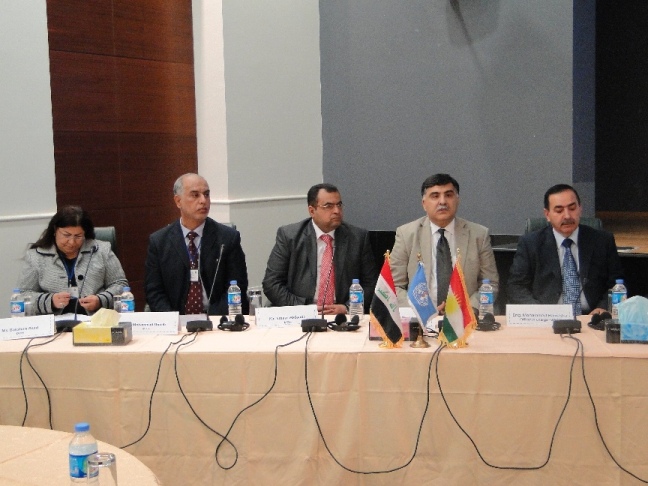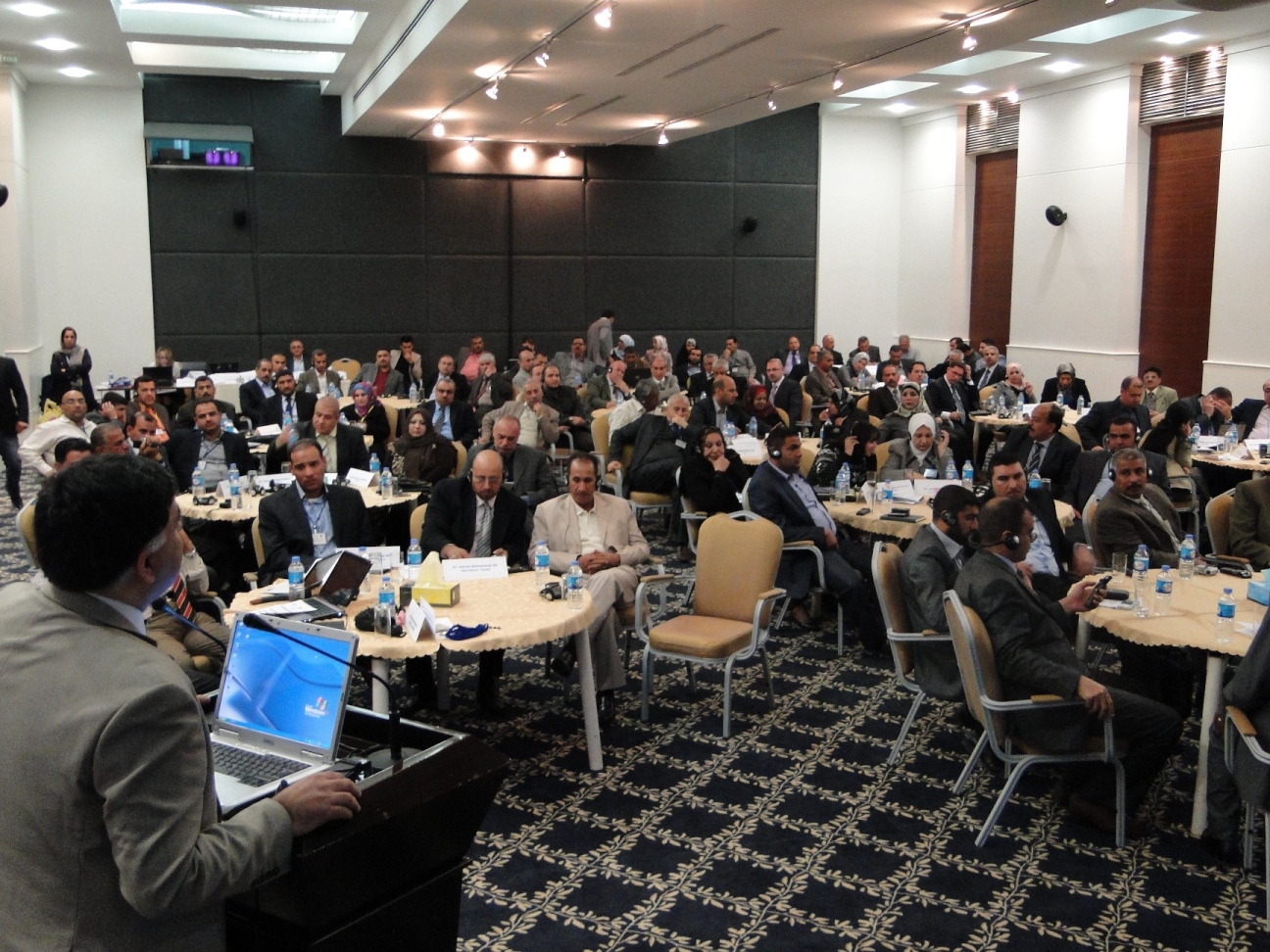 Key policymakers during the scaling up injury surveillance in Iraq workshop. (MoH, 2011) Erbil, 22 November 2011 – The Ministry of Health, in collaboration with the World Health Organization (WHO), completed a two-day workshop to present the results of the Iraqi Sentinel Injury Surveillance system for the year 2010. This study was conducted as part of the European Union funded programme to strengthen specialized medical services in Iraq (emergency medical services and blood transfusion services).
Key policymakers during the scaling up injury surveillance in Iraq workshop. (MoH, 2011) Erbil, 22 November 2011 – The Ministry of Health, in collaboration with the World Health Organization (WHO), completed a two-day workshop to present the results of the Iraqi Sentinel Injury Surveillance system for the year 2010. This study was conducted as part of the European Union funded programme to strengthen specialized medical services in Iraq (emergency medical services and blood transfusion services).
Over 100 professionals, from different ministries and organizations, including the Iraqi Ministry of Health, Ministry of Health /KRG, Ministry of Higher Education, Ministry of Planning and Ministry of Defense participated to the workshop to review the results and explore the possibility of expanding the injury surveillance system to the rest of country.
In his inauguration address to the participants, Dr. Sattar Al-Saidi, Deputy Health Minister for Technical Affairs, emphasized the importance of the injury surveillance system and the use of its results to identify gaps requiring interventions, not only at central, but also at the district level for the benefit of Iraqi people.
Ms. Hala Al-Sharifi, representing the European Union (EU) in the workshop, stated that “the EU support to Specialized Medical Services in Iraq, is part of the overall EU contribution to the well being of Iraqi population”. She added that “the results of injury surveillance system constitute an excellent tool to design interventions that will reduce the occurrence of injuries and thus will help to lower the number of avoidable deaths as well as to design strategies for injury prevention”.
Dr. Syed Jaffar Hussain, Representative and Head of Mission of WHO Iraq stated that the data being reviewed will provide information on key risk factors for different injury categories and what should be done to address them. He added that the system can also contribute to monitoring the success of interventions aimed at reducing these risk factors.
Dr. Jamal Shiban Al Kelani, member of the Health and Environment Committee of Iraqi Parliament, stated that such studies are important in order to understand better the main causes of injuries and will inform the process of reviewing and adapting the legislative framework, at the Iraqi Parliament, to help protect the health of Iraqi population.
 Dr Jaffar stressing on the importance of scaling up injury surveillance system in Iraq. (MoH, 2011)Dr. Mohammed Shuaib, General Director of Medical Operations and Specialized Services at the Iraqi ministry of health emphasized on the importance of ensuring that data collected are of high quality to serve as a basis for the development of injury prevention programmes in Iraq.
Dr Jaffar stressing on the importance of scaling up injury surveillance system in Iraq. (MoH, 2011)Dr. Mohammed Shuaib, General Director of Medical Operations and Specialized Services at the Iraqi ministry of health emphasized on the importance of ensuring that data collected are of high quality to serve as a basis for the development of injury prevention programmes in Iraq.
This study has shed light on some of the major causes of injuries in Iraq. It has been decided that the system will be expanded to all the governorates of Iraq.
PR Injury Surveillance workshop available in English | Arabic
For more information, please contact:
- Dr. Ezechiel Bisalinkumi at This e-mail address is being protected from spambots. You need JavaScript enabled to view it
- WHO Iraq Country Office at This e-mail address is being protected from spambots. You need JavaScript enabled to view it



